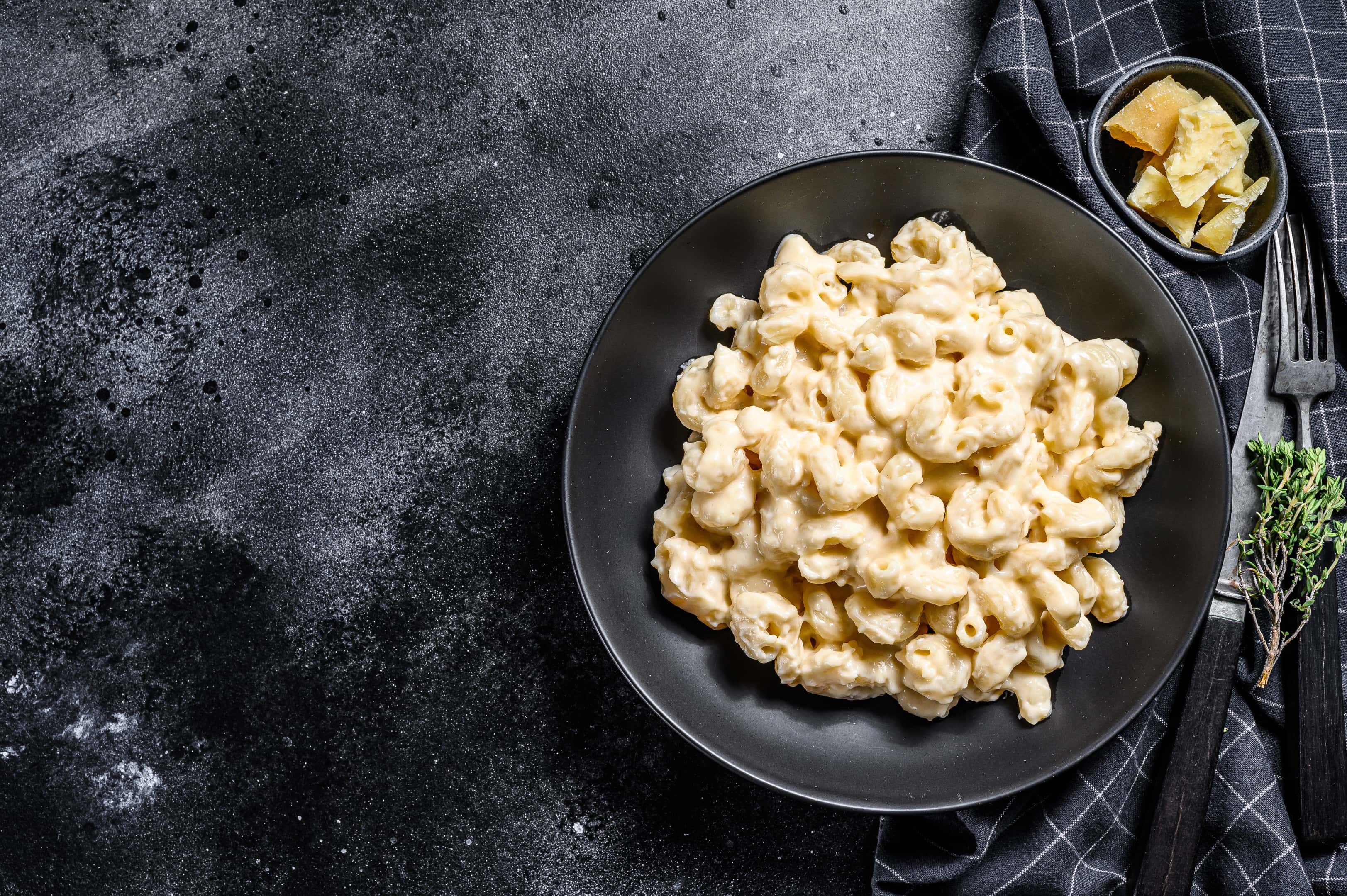Key takeaways
- The post explains what cortisol is, why it’s often called the “stress hormone,” and how it’s involved in processes like blood-sugar metabolism, inflammation response, and blood-pressure balance.
- It discusses what the article describes as potential effects of chronically high cortisol and notes that medical evaluation may be needed to find the underlying cause.
- It lists 7 items the post says may increase cortisol for some people: caffeine, trans fats, refined grains, low-fat yogurts, low-fiber foods, alcohol, and refined sugar.
- If you have symptoms or concerns about cortisol levels, use this list as general guidance and follow advice from a qualified clinician.
Free member perk: You can listen to the audio version of this article and get occasional quick-read guides. Join free.
More cortisol + stress guides (quick links):
- Foods that may help lower cortisol
- Supplements that may help lower cortisol
- Sleep + cortisol tools
- Stress-relief foods
Cortisol is a hormone your body uses to respond to stress. It also plays a role in things like blood sugar balance, inflammation, and sleep–wake cycles.
This guide covers a short list of common foods that may raise cortisol for some people, plus simple swaps. If you’re worried about symptoms or lab results, it’s worth talking with a clinician to look for the cause — not just the trigger.
For context: MedlinePlus (NIH) — cortisol test and Endocrine Society — Cushing syndrome.
Why is cortisol important?
Cortisol has a vital duty that it performs in our everyday activities by aiding the efficient balance of stress. Although it is popularly referred to as the ‘stress hormone’ because of the primary advantage that it offers to the body when it concerns stress, cortisol also contributes to other processes in the body. These processes include aiding the efficient metabolism of glucose, supporting the body’s response to inflammation, helping the body to balance blood pressure, and contributing to the release of insulin and immune system function.
Cortisol, which is produced by the adrenal glands in the body, is like an alarm system that helps the body to identify danger and stress. Its release is usually triggered by the brain through the nervous system. This hormone is mostly released for a short time to help us actively run and avert danger; but when it is released more often, it can cause harm and hence the need for balance. Cortisol is that hormone that shuts down other functions when you are in dire need of coming out of a fearful or stressful event. It can temporarily stop the functions of different parts of the body like the reproductive and digestive system, just to ensure that you get out of that situation that is making your adrenaline levels shoot up.
What happens when there is an increase in cortisol levels?
According to a study, the continuous release of cortisol without regulation can lead to different disorders like Cushing syndrome. High amounts of cortisol in the body can be caused by different factors like brain tumors and pregnancy, and can also be influenced by factors such as diet. If you continuously consume foods that increase cortisol, it can make your body system take up certain abnormal functions which can result in diverse medical conditions like muscle weakness, diabetes, incessant weight gain, depression, digestive system problems, headaches, difficulty in concentrating, short-term memory, anxiety, osteoporosis, and impaired immune system function.
A medium to a high level of cortisol in the body can also be caused by long-term existing factors like obesity and side effects of some medications like prednisone and dexamethasone. To help your body get back to the normal levels of this hormone, it is strongly recommended that you see qualified medical personnel who can help to identify the root cause of the acceleration of the cortisol levels. In addition to this, it is necessary to adopt healthy lifestyle choices and a diet that can help your body to better regulate the levels of cortisol, such as getting good sleep, moderate exercise, reduced stressful thinking, and limiting the consumption of foods that increase cortisol.
Free member perk: You can listen to the audio version of this article and get occasional quick-read guides. Join free.
7 foods that can increase cortisol
In regulating the amount of cortisol and increasing the performance of other hormones in the body, nutrition is very important. Having and adopting a sensible diet can help you take control over the levels of this hormone; the presence of the wrong kinds of foods in your diet can, however, increase food cravings, add to the stress, and support the accumulation of fats. The foods listed below are some of the foods that increase cortisol:
1. Caffeine

The truth is that almost everyone loves to jump-start their day with a cup of coffee; but do you know that caffeine can spike up the amount of cortisol that is being released by your adrenal glands? We are not saying that caffeine in all its entirety is bad, but if you are already a person who suffers from several effects due to several stressful situations in your life, then you should give up caffeine. If you are always mentally stressed or have continuous anxiety, the use of caffeine can elevate the levels of your cortisol and cause harm like difficulties in concentrating, headaches, and even depression. Excess consumption of drinks that contain caffeine can also make the levels of blood sugar go up, since caffeine is one of the foods that can decrease your body’s sensitivity to insulin; when this happens, your body produces more insulin than it needs since it is unable to absorb enough sugar from the foods that you consume. If you are battling with diabetes, you should try to stay away from caffeine, as it can cause more damage to your body system.
2. Foods that contain trans fats

Trans fats are the kinds of fats that are described as unsaturated and are heavily laden with adverse effects. Foods containing trans fat can increase inflammation thereby aggravating the factors that cause metabolic syndrome, heart disease, arthritis, and diabetes. This fat can also harm the lining of the blood vessels and add to cholesterol; this creates systemic inflammation, a condition which is known to contribute to elevated cortisol levels. Foods that contain trans fat include frozen pizza, fried chicken, stick margarine, refrigerated biscuits, pies, non-dairy coffee cream, cookies, microwave popcorn, and cakes.
3. Refined grains

Refined grains are also included in the foods that increase cortisol. This type of grain has been substantially modified and has undergone certain changes that have tampered with its original composition. The modification processes used in producing these grains involve the use of machines to remove germ and bran from the grain. Refined grains are not good for the body in general because they contain fewer nutrients than whole grains. They are often starchy, low in natural fiber, and some, like white flour, contain gluten. You should also reduce the consumption of refined grains because many of its food products contain artificial flavors and coloring. Refined grains can affect the levels of your cortisol due to their high glycemic index. Refined grains that you should stay away from include degermed cornflour, white rice, and white flour.
4. Low-fat yogurts

If the levels of your body’s cortisol are high, yogurts that contain little or no fat can cause more harm. This is because these types of yogurts are just like junk foods, all the fat in them has been taken out and replaced with sugar, artificial flavorings or sweeteners. Not only will these kinds of yogurts elevate the secretion of cortisol in your body, but they can also affect the health of your gut. Instead of low-fat flavored types of yogurts, opt for premium yogurts that have probiotic bacteria in their composition as these bacteria can help reduce the levels of cortisol.
5. Foods that contain less fiber

Foods that have little amounts of fiber in them, such as many refined carbohydrates, may contribute to higher cortisol levels because they are digested quickly. They don’t make you feel satisfied for a long time and do not promote regular bowel movements. This lack of fiber can also contribute to less stable blood sugar levels, a factor which can influence your body's stress response. You should also refrain from consuming carbohydrates that have little or no fiber because the body digests them quickly thereby causing the levels of insulin and blood sugar to rise beyond normal. Additionally, foods that are low in fiber can also contribute to inflammation and reduce the functions of the gastrointestinal system. Foods here include noodles, French toast, waffles, plain pasta, and pretzels.
6. Alcohol

Alcohol can greatly cause your stress levels to shoot up especially when consumed after an intense workout. According to alcohol research, continuous and excessive consumption of alcohol can have damaging effects on the liver and can also give rise to different health conditions like hepatitis, steatosis, and cirrhosis, as the process of breaking down alcohol creates toxins and strains the liver. As a result, when alcohol is being consumed, it heightens stress inside the body thereby spiking the levels of cortisol. Also, alcohol can act as an agent of bad moods and may cause depression.
7. Refined sugar

The last category of food on our list of foods that increase cortisol is foods that contain refined sugar. Sugar in every form will cause your body to release more cortisol because sugar adds to blood sugar levels rapidly and then also causes them to fall quickly. If you are looking to regulate cortisol, you must stay away from sugary foods, especially foods that have refined sugar in them. Regularly consuming foods that contain this type of sugar can lead to an addiction which could put your body in a place whereby it continuously craves sugar and until it gets it, your cortisol levels will be high. This can over time make your body resist insulin and it may become harder to bring down the levels of your cortisol.
More cortisol guides
Here are our other guides about cortisol, stress, and sleep:
- Cortisol-lowering foods and natural ways
- Supplements that may help lower cortisol
- Technologies to lower cortisol and improve sleep
- Stress & cortisol supplement product examples (free members)
Conclusion
It is important to embrace the need for a balance in the body’s cortisol release, as the continual consumption of the foods discussed above can jeopardize this balance, which can bring about many obstacles. A continuous spike in the levels of cortisol can cause insulin resistance, anxiety, an increase in energy use, and heart rate. While avoiding these foods is a critical first step, you can also consider supplements and other lifestyle steps that support healthy cortisol levels.






